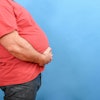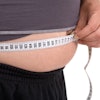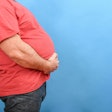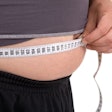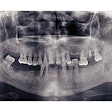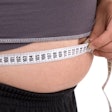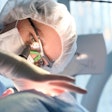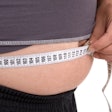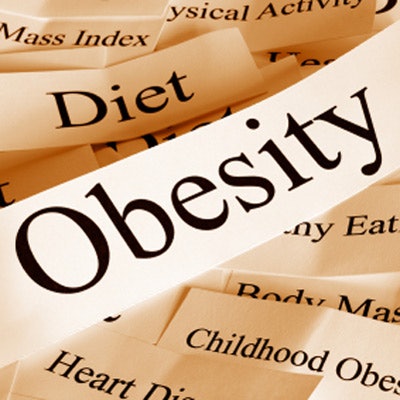
Bariatric surgery is a good option for treating obesity in certain patients, but it can cause some gastrointestinal complications and oral problems. Does it increase the risk of developing caries? The authors of a new review looked for answers.
Researchers conducted a search for published journal articles related to caries or salivary flow in bariatric surgery patients. They found that it was plausible that undergoing the procedure places patients at greater risk of developing caries.
"It is very important to establish preventive dental protocols and promote oral health in patients undergoing bariatric surgery," the authors wrote (Public Health, February 2018, Vol. 155, pp. 26-34).
The lead author was Angel-Orión Salgado-Peralvo, DDS, a practicing dentist in Vigo, Spain, with co-authors from the dental school at the Complutense University of Madrid and other universities in Spain.
Risks of downsizing
Bariatric surgery is the only treatment for morbid obesity that has been found to be clinically effective over the long term. The use of this procedure also is increasing, according to the authors.
A number of different bariatric surgery procedures are performed today, typically using minimally invasive laparoscopic techniques, according to the American Society for Metabolic and Bariatric Surgery. They cause weight loss by restricting the amount of food the stomach can hold and causing malabsorption of nutrients. The procedure is indicated for individuals with a body mass index (BMI) of 40 or higher (for example, 271 lb or more in a patient with a height of 5 feet 9 inches), those with a BMI of 35 and at least one obesity-related comorbidity, or those unable to lose weight using other methods.
Bariatric surgery changes anatomy, physiology, and dietary habits, which can cause gastrointestinal complications. Additionally, changes in diet, the quantity and quality of saliva, nausea, or vomiting after bariatric surgery can have negative effects on the oral cavity, including an increase in oral lesions, primarily in the form of caries, the authors wrote.
“It is very important to establish preventive dental protocols and promote oral health in patients undergoing bariatric surgery.”
However, there is no protocol for preventing this increase in oral problems in these patients, and they may be unaware of their possible increased caries risk, the authors noted. Therefore, they wanted to find out if obese patients who have undergone bariatric surgery have a greater risk of developing caries.
They searched the Medline database for studies published in English or Spanish from January 2007 through January 2017 that used the keywords bariatric surgery, gastrectomy, or obesity surgery, combined with saliva and dental caries. They also required that included studies be case series clinical trials performed in humans.
The authors ultimately identified 79 potential articles, nine of which they found clinically relevant and included in their analysis. They assessed each study for risk of bias and extracted the data from them using a predesigned form.
Postoperative monitoring ranged from six to 24 months among the included studies. Just two studies had the objective of evaluating caries risk, while others looked at the oxidative/antioxidative capacity of stimulated saliva and unstimulated saliva and also the changes at the oral level following surgery, including masticatory function, total protein and enzymatic content, salivary characteristics, and halitosis.
Using the DMF index (the number of decayed, missing, or filled teeth), some studies did not find any significant differences in the number of caries in obese patients who had undergone bariatric surgery compared with healthy normal-weight subjects or obese subjects who had not undergone the surgery, although this could be due to the limited length of the follow-up periods, according to the review authors. However, one study found significant DMF differences in patients six months after bariatric surgery compared with healthy patients, while another study found a difference in the number of teeth lost because of caries.
Other findings included an increase in the presence of Streptococcus mutans at six months. Some studies found similar rates of dental erosion in obese patients who did and didn't undergo surgery, while others found a significant increase several months after surgery. One study found that only 7.7% of patients did not experience vomiting over an average of 24 months after bariatric surgery.
"This vomiting, aside from the frequent intake of sugars, entails the creation of an acid oral environment that alters the oral microbiota and the pH, thus facilitating dental erosion, secondary hypersensitivity, and the development of carious lesions," the review authors wrote.
They listed other factors, including that patients are instructed to increase the number of meals they eat per day to about four to six after surgery.
"Thus all these factors would incline the scales toward an imbalance in favor of the development of dental caries in patients who have had bariatric surgery," they wrote.
Future protocols
The authors stressed the need for future studies that determine caries risk prior to bariatric surgery, use tools such as the caries management by risk assessment (CAMBRA), and are better able to determine the effects of obesity and bariatric surgery on caries risk.
They recommended assessment and pre- and postoperative monitoring of bariatric surgery patients by dental professionals.
"The potential benefits obtained with this procedure in patients with morbid obesity exceed the adverse oral effects; nevertheless, these complications could be prevented or minimized with adequate monitoring," they concluded.

